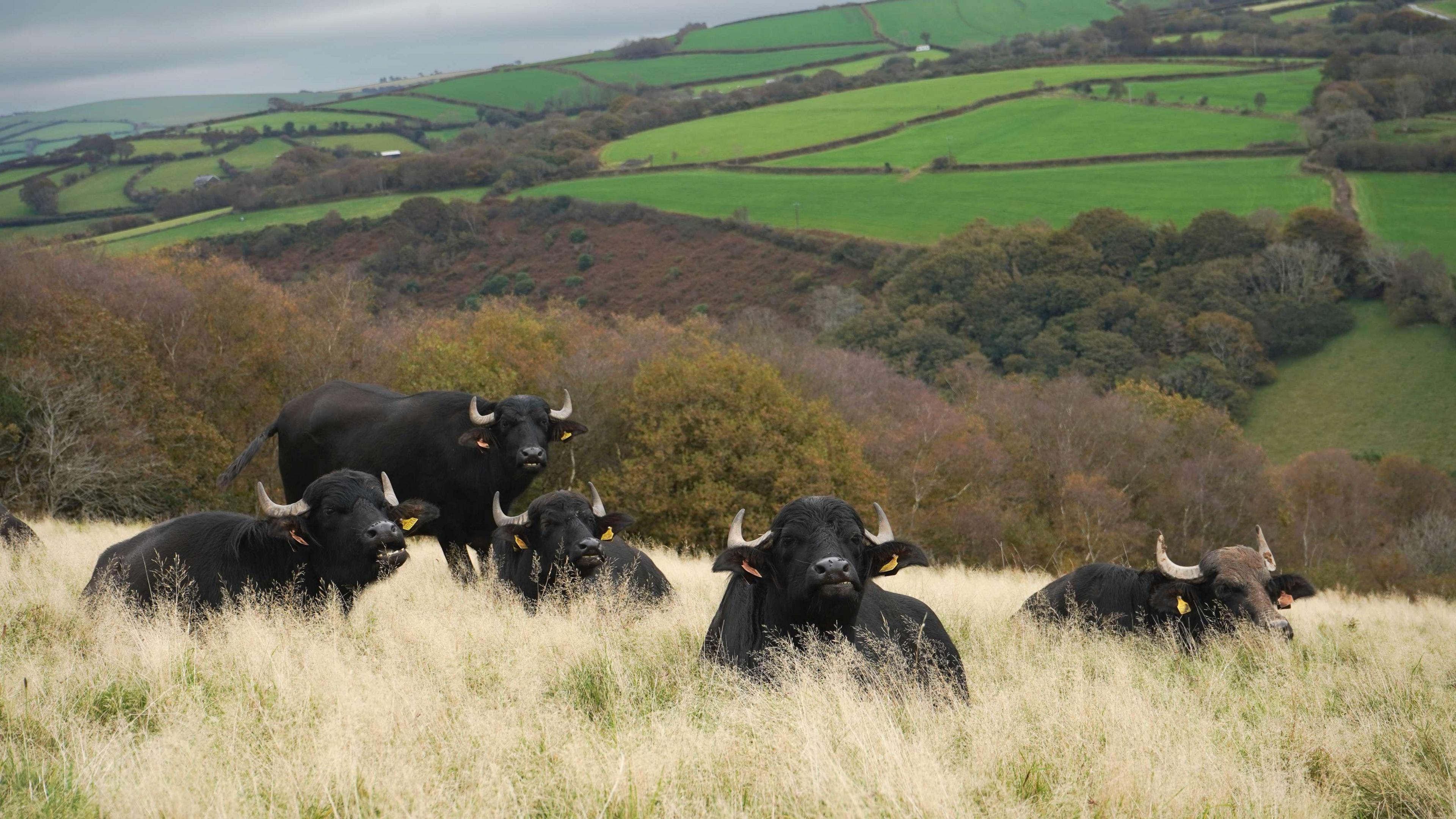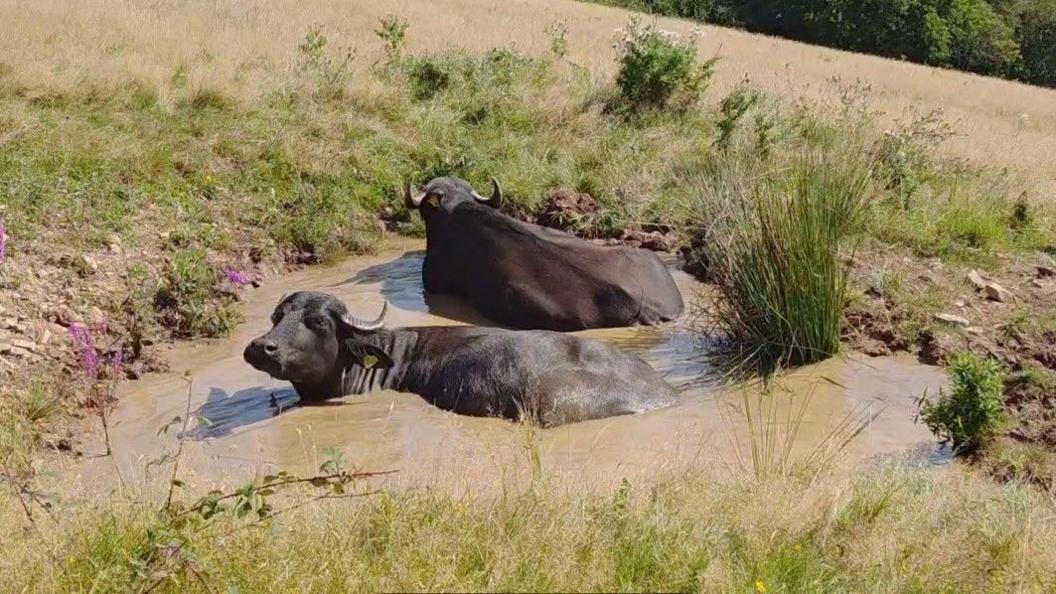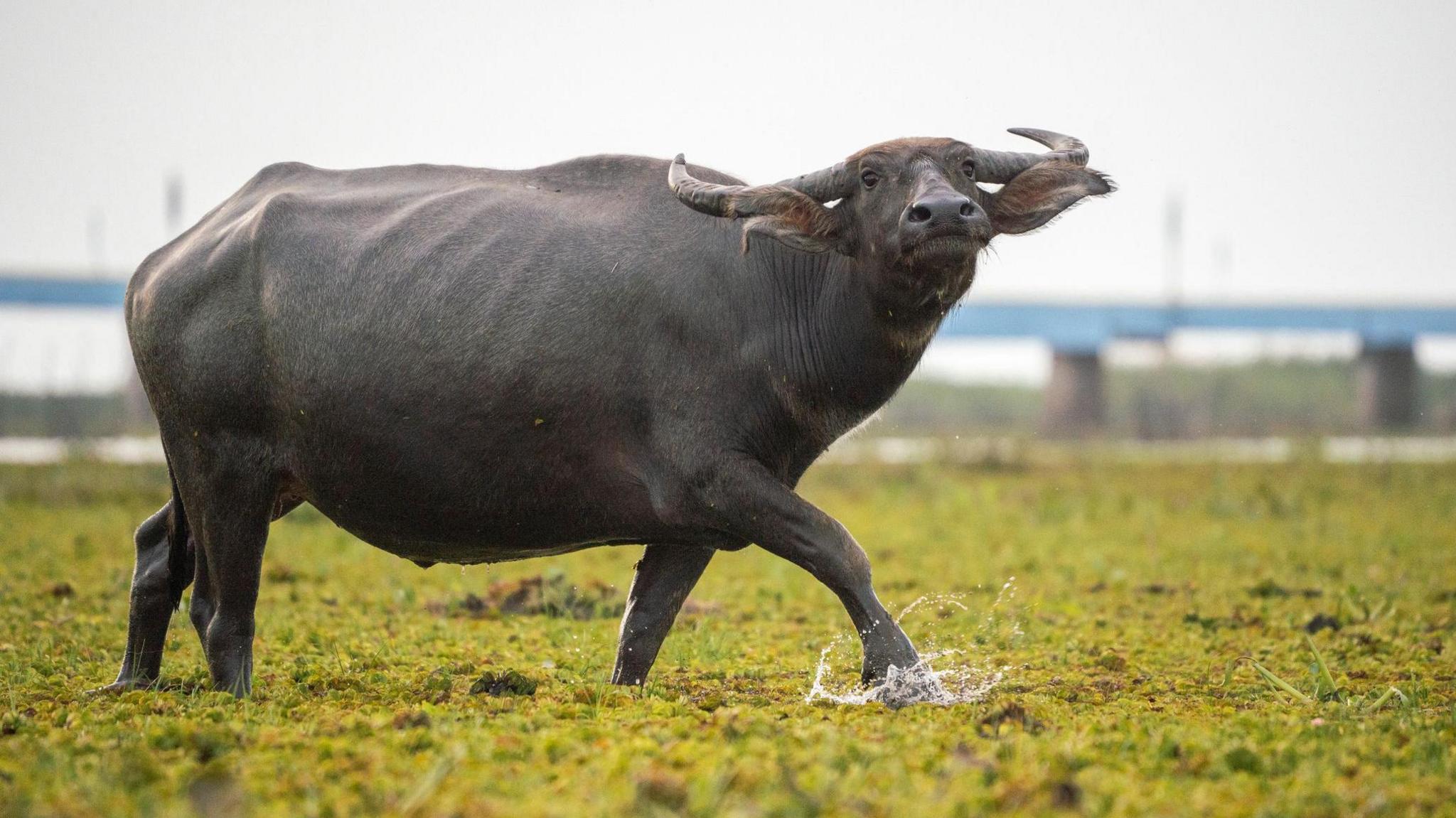Water buffalo to the rescue as part of project to restore wetland area

The National Trust want these water buffalo to help bring bring back wetlands in Exmoor
- Published
If you need some work done on a field, what would you choose: a tractor or some water buffalo?
Well, it might surprise you, but the National Trust in the South West of England have gone for option B!
A herd of six female water buffalo have been introduced into some farmland in Tattiscombe, in the hope that they can bring it back to its original state.
It used to be a wetland, which is an area that is either permanently covered in water, or is covered by water during certain seasons.
The National Trust think the water buffalo will help restore the area to being a wetland.
- Published30 January
- Published16 September 2021
Why does the area need work?

Water buffalo love a little paddle
When nature is too neat, it's sometimes not the best environment for certain types of animals and insects.
This is where the water buffalo come in - they've been brought to Devon specifically to make a mess.
By shovelling around in the mud, they create areas for water to pool in and more plants to grow.
The National Trust told BBC Newsround: "The water buffalo on West Exmoor are helping to look after the land in a natural way, without using heavy machines.
"Their hooves churn up the soil, create wallows, and keep ponds and pools open, which slows water and helps it settle naturally.
"As they eat scrubby plants and move around the site, they make space for wildflowers and other plants to grow, creating lots of different habitats. This gives insects, birds, mammals, and other animals more places to live, while also helping the land hold water."
Why water buffalo?

Water buffalo come from Asia, like this one in Thailand
Water buffalo are not the first animals that have been set this task in the area.
The rewetting project was started in 2019, and lots of animals such as longhorn cattle and certain pigs have been taking part.
Water buffalo are from Asia, and so are not native to the UK.
But the buffalo's thick skin makes them extra resistant to water-loving pests such as flies and ticks, which is why they're brought here specifically to carry out the job.
